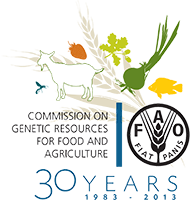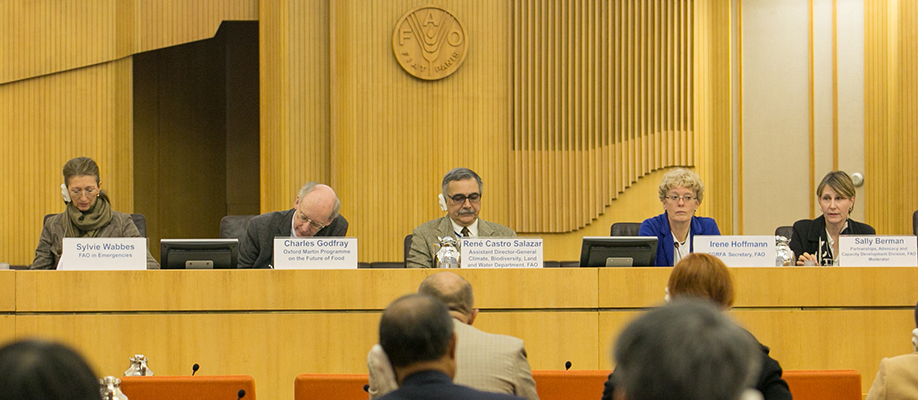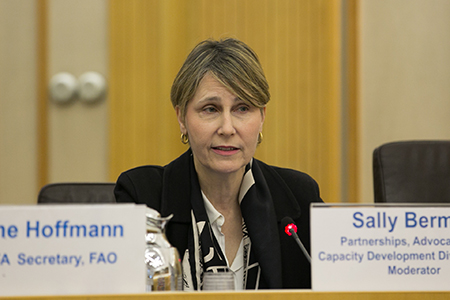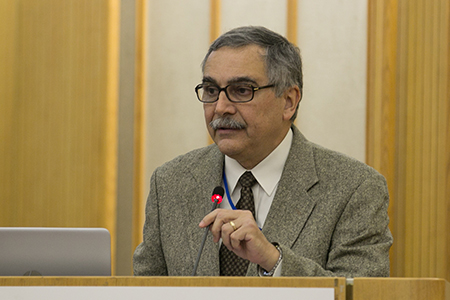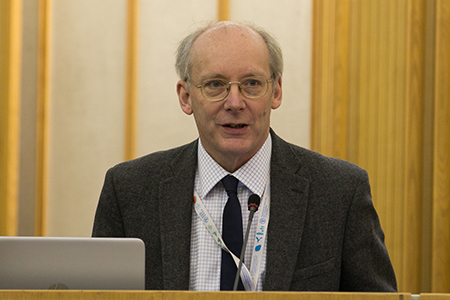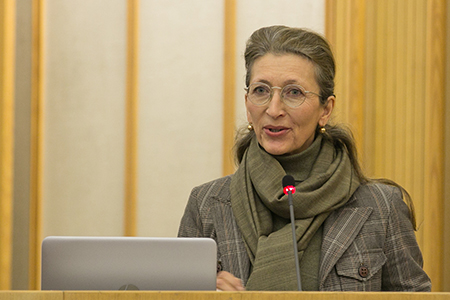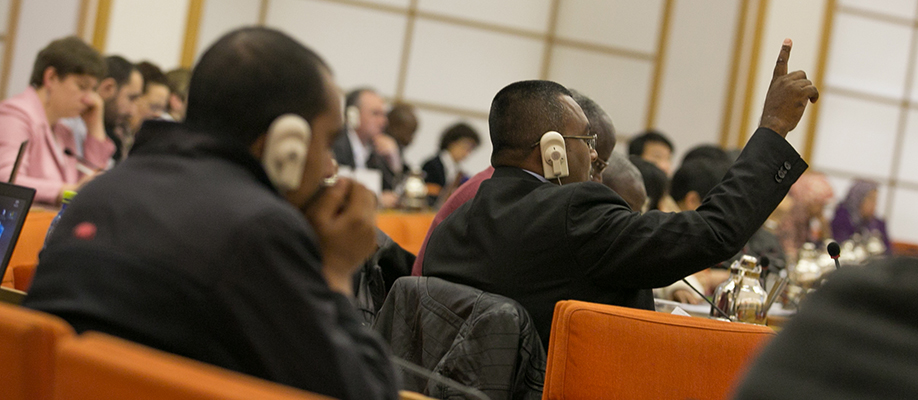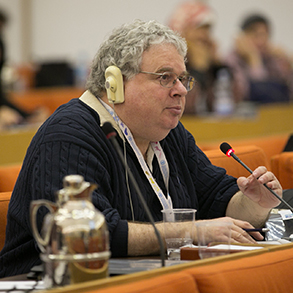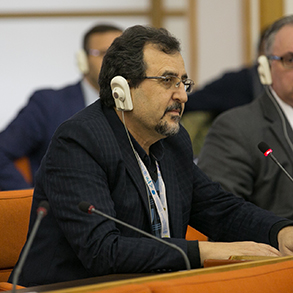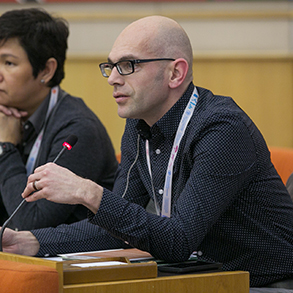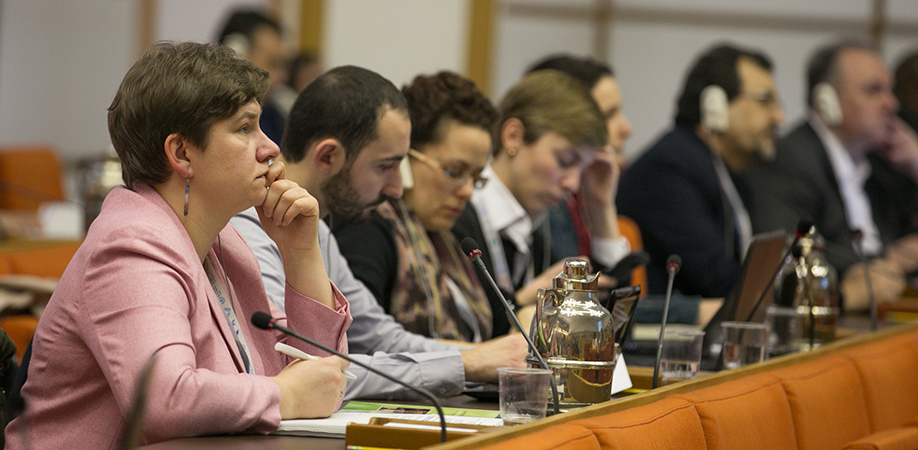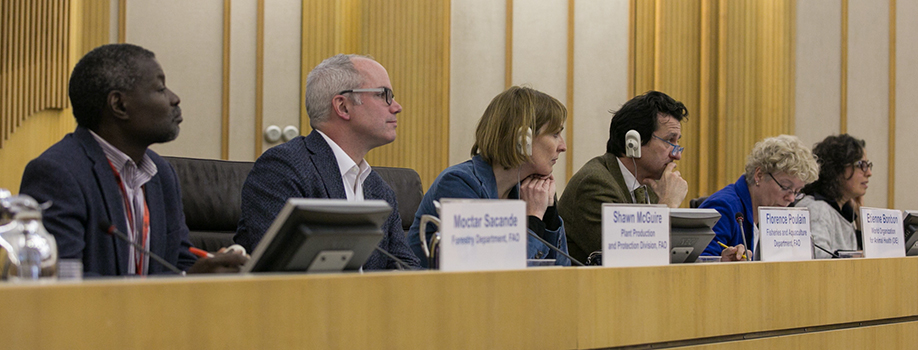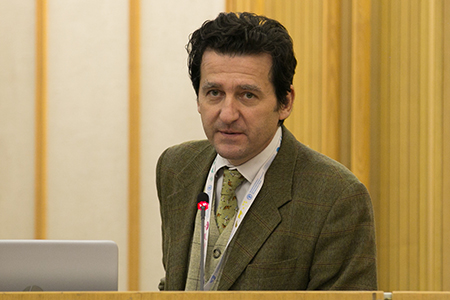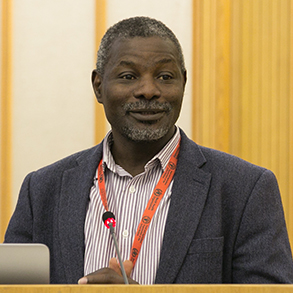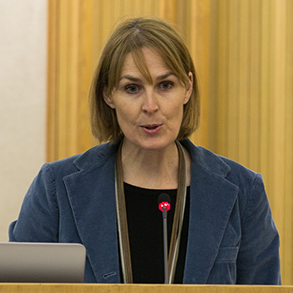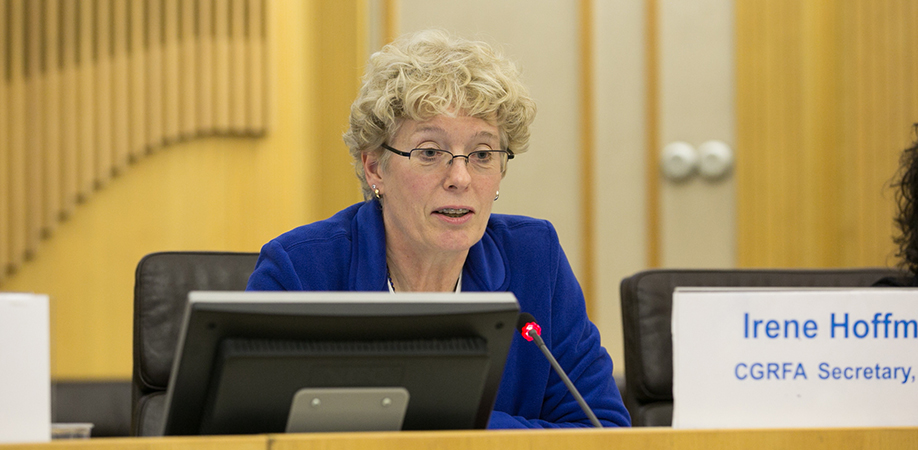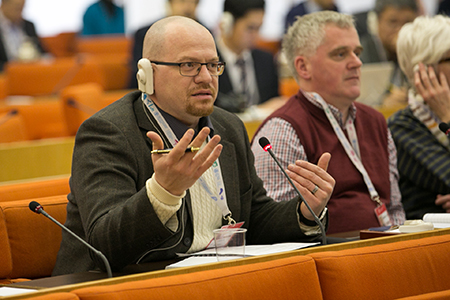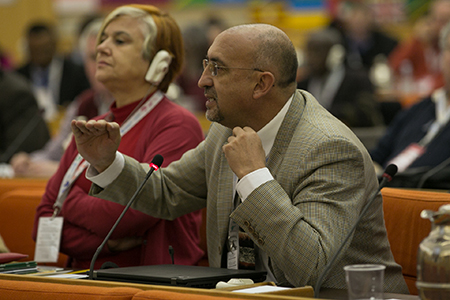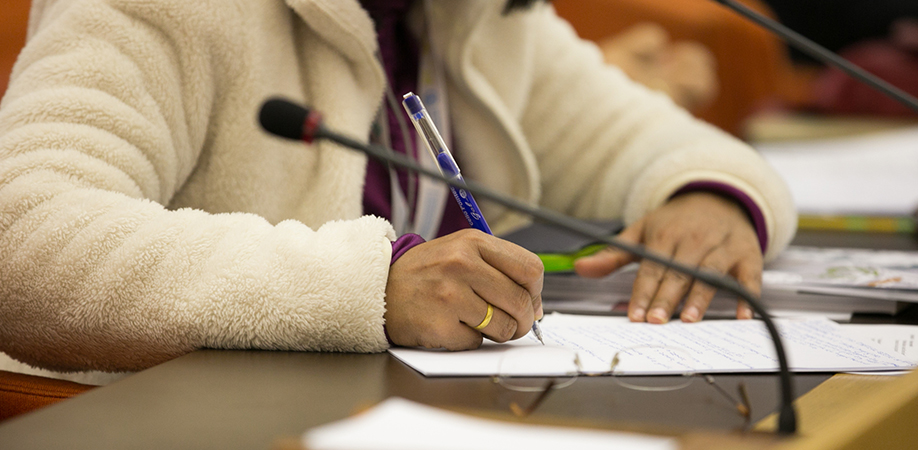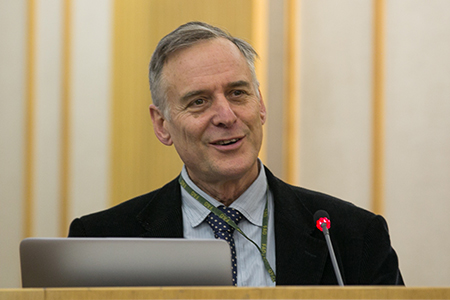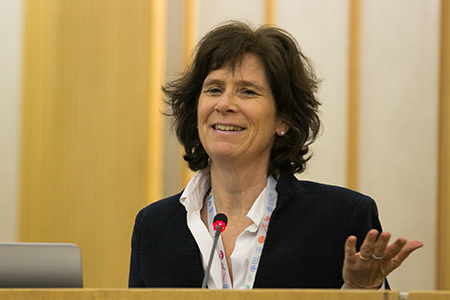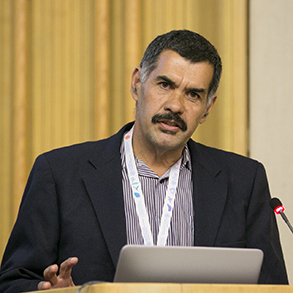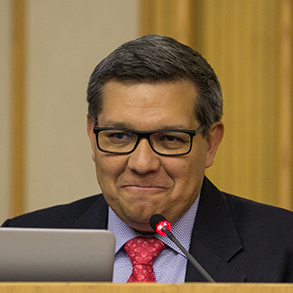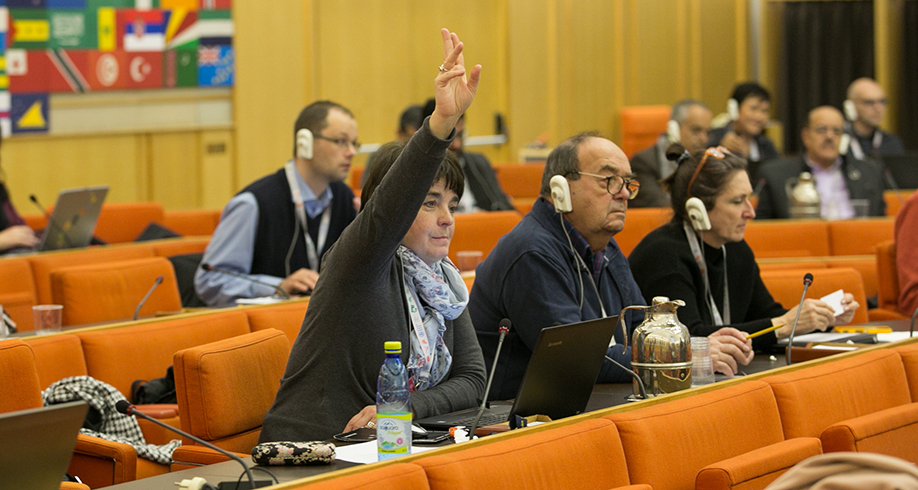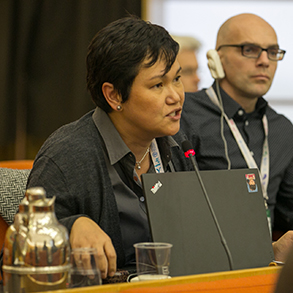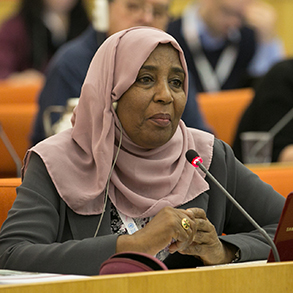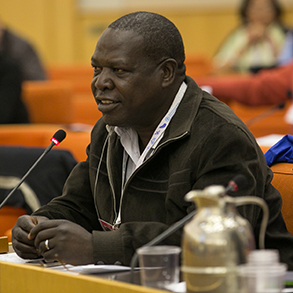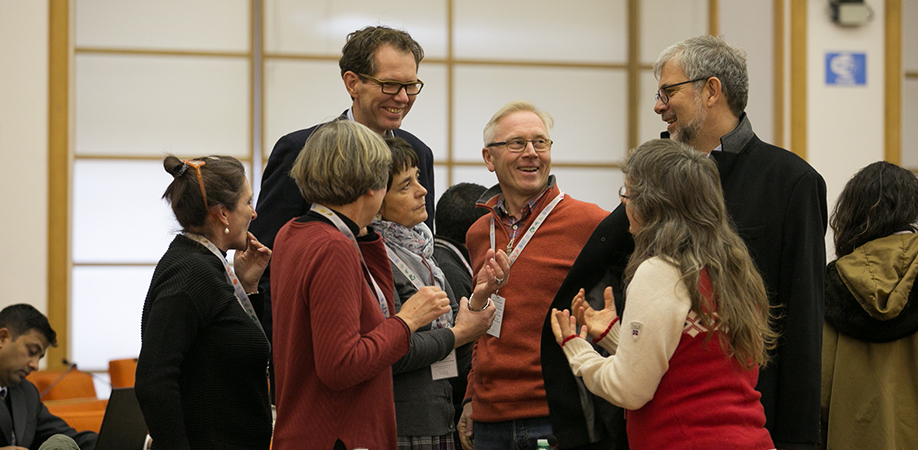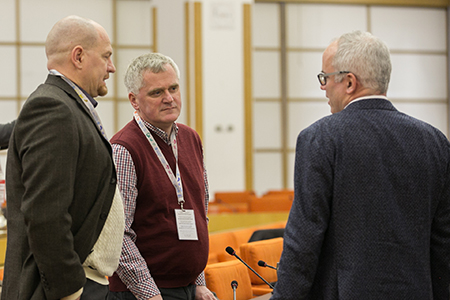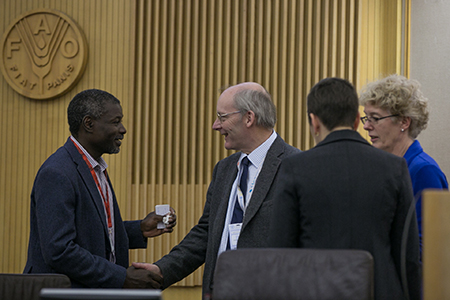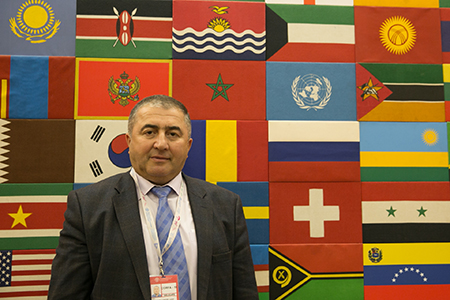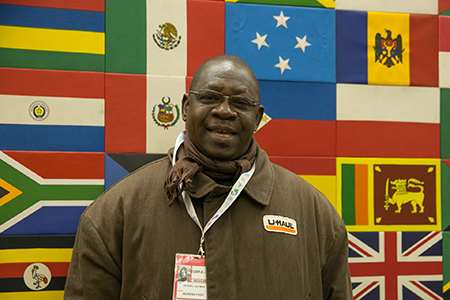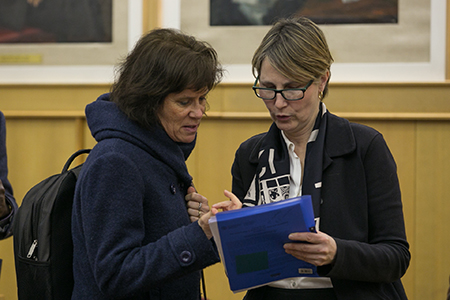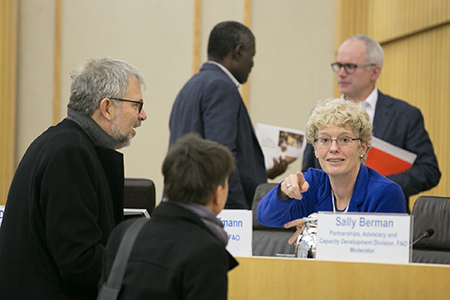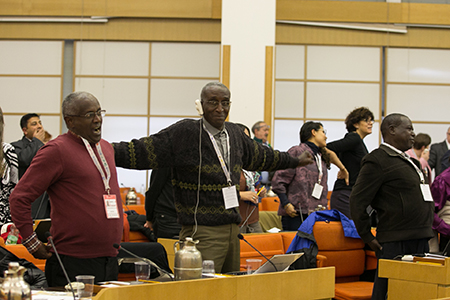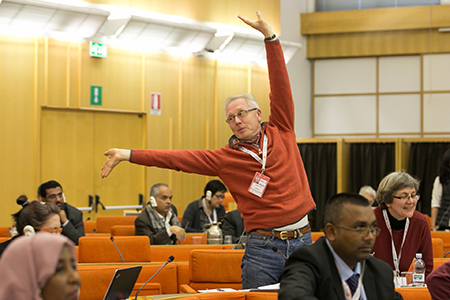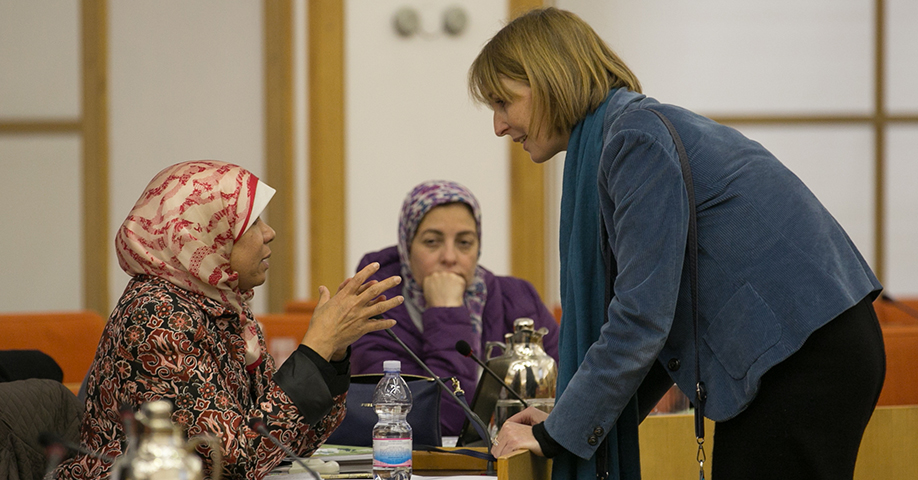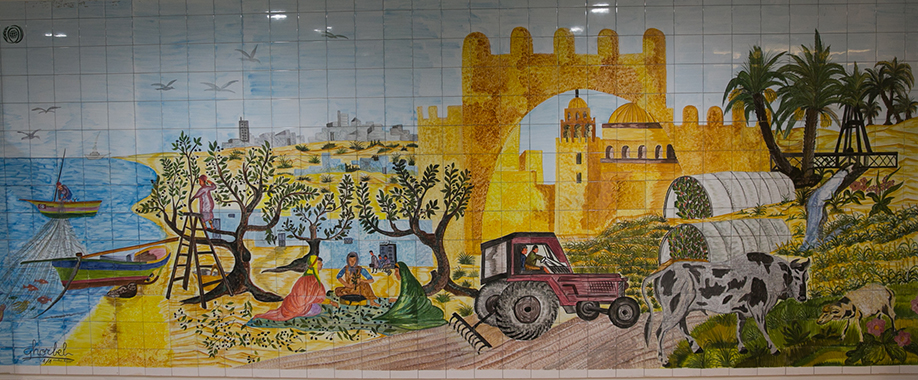Summary
Participants to the Special Event on the Contribution of Biodiversity for Food and Agriculture to Resilience, organized by the Commission on Genetic Resources for Food and Agriculture (CGRFA), discussed how biodiversity and ecosystem services help protect food production against the impact of long-term environmental changes and shocks created by natural and human-made disasters.
Approximately 120 attendees from government agencies, farmers, the private sector and civil society considered the role that biodiversity for food and agriculture can play for emergency relief, including how the conservation and sustainable use of plant, animal, forest and aquatic genetic resources can help address damage from disasters and contribute to disaster risk reduction (DRR).
The group agreed on several key messages to be transmitted to the CGRFA for further consideration, including the need for: better metrics for biodiversity and approaches to quantify the role of biodiversity and traditional knowledge for DRR and resilience; making genetic resource conservation an integral approach of agricultural resilience strategies; guidance on selecting, accessing and breeding appropriate genetic resources; more collaboration among agricultural sectors; investment in gene banks and breeding for DRR; and awareness raising. Participants also underlined that heterogenous landscapes provide better buffers in case of disasters because they deliver a wider variety of ecosystem services.
IISD Reporting Services, through its ENB Meeting Coverage, provided digital coverage and a summary report of the Special Event: The Contribution of Biodiversity for Food and Agriculture to Resilience. In addition, IISD Reporting Services produced daily reports, daily digital coverage, and a summary and analysis report from CGRFA 16. The summary and analysis report is available in HTML and PDF format.
Photos by IISD/ENB | Kiara Worth
For photo reprint permissions, please follow instructions at our Attribution Regulations for Meeting Photo Usage Page.
Opening Remarks
View of the panel during the opening remarks
Sally Berman, Partnerships, Advocacy and Capacity Development Division, FAO
René Castro Salazar, Climate, Biodiversity, Land and Water Department, FAO
Charles Godfray, Oxford Martin Programme on the Future of Food, University of Oxford, UK
Sylvie Wabbes, Strategic Objective 5 (Increase the resilience of livelihoods to threats and crises) Team, FAO
Delegates ask questions during the discussion
Brad Fraleigh, Canada
Javad Mozafari Hashjin, Iran
Bram De Jonge, Oxfam Novib
Delegates during the session
Biodiversity for Food and Agriculture: An Issue for Emergency Relief?
View of the panel during the session
Nora Berrahmouni, Forestry Department, FAO
Etienne Bonbon, Terrestrial Animal Health Standards Commission, World Organization for Animal Health (OIE)
Moctar Sacande, Forestry Department, FAO
Florence Poulain, Fisheries and Aquaculture Department, FAO
Shawn McGuire, Plant Production and Protection Division, FAO
Irene Hoffmann, CGRFA Secretary, FAO
Carl Lessard, Canada
Cesar Tapia, Ecuador
Beyond Emergency Relief: Biodiversity for Food and Agriculture in a Context of Changes and Crises
View of the panel during the afternoon session
Mark Davis, Climate and Environment Division, FAO
Karen Sudmeier-Rieux, Institute of Earth Sciences, University of Lausanne, Switzerland
William Wigmore, Ministry of Agriculture, Cook Islands
Hesiquio Benítez Díaz, Mexican Commission for the Knowledge and Use of Biodiversity (CONABIO)
Julie Bélanger, CGRFA Secretariat
Delegates participate in the discussion
Gigi Manicad, Oxfam Novib
Afaf Abdelrahim Elguzouli, Sudan
Desterio Ondieki Nyamongo, Kenya
Around the Venue
Delegates speak informally
Levan Ujmajuridze, Georgia
Jean Marie Batiebo, Burkina Faso
Delegates review documents
Irene Hoffmann, CGRFA Secretary, FAO, speaks with delegates
Delegates stretch between sessions
Delegates speak informally
